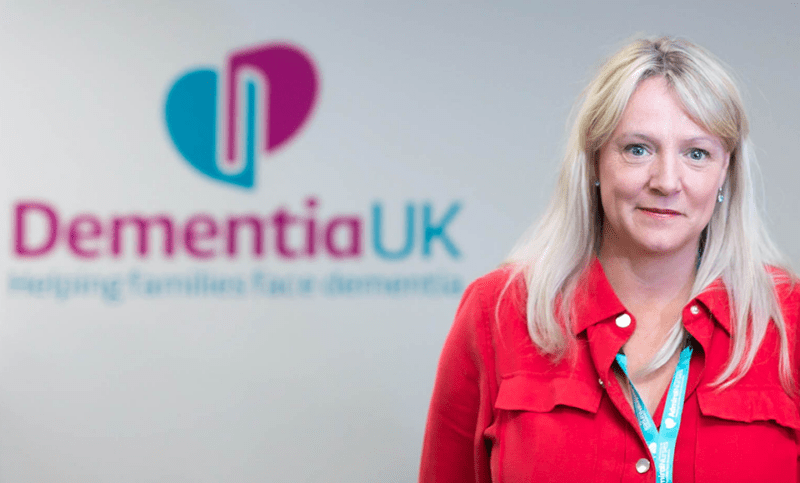
A day in the life of Admiral Nurse Ruby Guild
Ruby talks us through her working day supporting families affected by dementia in local communities.
The Admiral Nurse team share the advice they have given to families since working in the Closer to Home service.
Together with our corporate partner Leeds Building Society, we launched our face-to-face Closer to Home dementia clinics in January 2023. Taking place in Leeds Building Society branches, the clinics offer families a free, confidential appointment with a dementia specialist Admiral Nurse in a location close to them.
Carers play a pivotal role in supporting their loved one with this transition into care. You can share so much personal and detailed information on your loved one’s needs, background, personal and social history, likes, dislikes and preferences.
Working closely with the care home is crucial as you know the person living with dementia best. You can work together with the care home to help make the transition as smooth as possible and can continue to make a meaningful and purposeful contribution to the care of your loved one.
Although this can be a daunting time, it is likely that your loved one may have been living with dementia symptoms some time before you spoke to the GP or memory clinic.
It’s good to plan for the future but try not to make too many changes at once. It’s important for someone living with dementia to remain as independent as possible. By putting too much support in too early, you run the risk of de-skilling the person. Sometimes this can speed up the progression of dementia. Try to take one day at a time.
Attendance Allowance is a weekly benefit for people who need extra help because of a long-term physical or mental disability, including dementia.
You can watch a video on the Dementia UK website which includes a detailed walkthrough of the application form and the kinds of information you should include if you are applying as a person living with dementia or on behalf of someone with dementia.
It can be difficult for a person living with dementia to change or learn new ways to adjust to their condition. Try to increase your understanding of what the person living with dementia is experiencing and why. How can you make changes to better support the person living with dementia? For example, having patience and understanding if it is taking longer to complete a task. Reducing the number of choices may simplify the task at hand.
We all need to have a meaningful and purposeful life. So instead, focus on what they can do. It doesn’t matter if activities do not have a beginning, a middle or an end or do not seem purposeful to everyone else. To the person living with dementia, the activity can make all the difference to the way they feel.
If you care for someone who has dementia, or live with the diagnosis yourself, you can book a free 45-minute appointment with a dementia specialist Admiral Nurse.

Ruby talks us through her working day supporting families affected by dementia in local communities.

We speak to Admiral Nurse Jules, on why she chose to specialise in young onset dementia and how she supports families.

Helen McDavitt is the Head of Helpline and Clinics at Dementia UK.